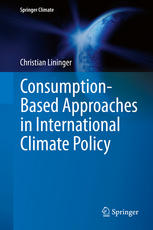

Most ebook files are in PDF format, so you can easily read them using various software such as Foxit Reader or directly on the Google Chrome browser.
Some ebook files are released by publishers in other formats such as .awz, .mobi, .epub, .fb2, etc. You may need to install specific software to read these formats on mobile/PC, such as Calibre.
Please read the tutorial at this link: https://ebookbell.com/faq
We offer FREE conversion to the popular formats you request; however, this may take some time. Therefore, right after payment, please email us, and we will try to provide the service as quickly as possible.
For some exceptional file formats or broken links (if any), please refrain from opening any disputes. Instead, email us first, and we will try to assist within a maximum of 6 hours.
EbookBell Team

0.0
0 reviewsThis book analyses the potentials and consequences of a change from production-based to consumption-based approaches in international climate policy. With the help of an analytical model, the author investigates the effects of different policy variants on environmental effectiveness, cost-effectiveness, carbon leakage, competitiveness and the global distribution of income. The economic, legal and political background and the often contradictory findings on consumption-based approaches are reviewed in great detail. In the final chapters, options for practical policy design are developed. The book concludes that a switch to consumption orientation is not a policy tool whereby industrialized countries can unilaterally improve climate policy effectiveness, but should rather be seen as a possible intermediate step on the way to a fully multilateral mitigation strategy.